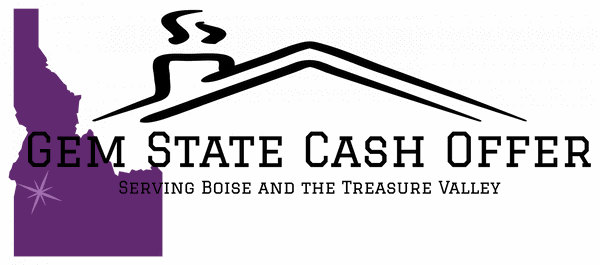There are a lot of moving parts when you’re getting ready to sell your house. From finding a real estate agent or deciding to sell your house by yourself to listing your house, accepting offers, paying a down payment, and closing costs, it can be extremely complicated.
Most people assume that the home buyer is responsible for paying all the costs associated with buying a house, but that’s not the case everywhere.
If you’re planning on selling your home in exchange for a brand new home in Boise, Idaho, here is a quick look at everything you’ll need to know about what you can expect with closing costs.

What are Closing Costs?
In short, closing costs are the combination of fees associated with finalizing the mortgage rate of a new home. Whether you’re new homeowners buying a house or refinancing your existing mortgage, be prepared to pay closing fees.
Generally speaking, the home buyers are the ones who pay the costs associated with purchasing a new home. However, depending on where you live and your state and local regulations, sellers may have to pay some closing costs too. Many people don’t realize that sellers may have to pay some of these charges.
The more complex answer to what these costs are, well, simply put, it’s a list of charges that showcase all the potential fees that may be included in finalizing your home purchase.
Of course, what your closing costs include will depend on a variety of factors, such as the cost of your home, where you live, your credit report score, and more.
Here are the various components that may or may not go into the total price of your closing fees:
- Tax services
- Documentation preparation
- The appraisal
- Land surveys
- Your credit report
- Title insurance
- Home inspection
- Escrow fees
- Attorney fees
- Homeowners Association (HOA) fees
- Courier fees
What are the Closing Costs in Boise?
In Boise, ID, both the home buyer and home seller are responsible for some portion of the closing cost. The general consensus in the country is that the homebuyers will pay anywhere from two to five percent of the final price of the property via closing costs. But in Idaho, the closing costs are anywhere between 1% and 2.7% of the home’s value.
The closing costs in Boise are significantly lower than the national average, which makes buying and selling here appealing. For example, in Ada County, where you’ll find Boise, the median home value is $242,300.
The average percentage of the home’s value in Ada county is 1.43%. That would make the average closing costs in Boise, Idaho, $3,458. These median estimates are based on a 30-year mortgage rate with a 20% down payment.
Boise Closing Cost Inclusions
As previously mentioned, there are several components that closing costs include. Here are the components included in your closing costs when buying or selling a house in the state of Idaho:
- Mortgage loan origination fees
- Appraisal fees
- Insurance title
- Private mortgage insurance (PMI)
- Property survey
- Prepaid costs
- Home inspection
Depending on your situation, there may be some additional fees companies will add to your closing costs. For example, they may add attorney fees to the closing costs if you used or needed an attorney during the buying and selling process.
Something to keep in mind when you’re getting ready to pay for closing costs is that your property taxes are deductible.
Who Pays Closing Costs in Boise?
Title insurance is always included in closing costs in Boise, Idaho. Generally speaking, it’s customary for the home buyer to pay for the lender’s policy, whereas the person selling their house pays for the owner’s policy.
When it comes to the other components of the closing costs, the buyer is still responsible for its majority. One way that sellers take on more of the closing costs is if the buyer negotiates with them.
If the buyer can give the seller something they want, such as a cash deposit or a quick closing, sellers may take on more closing costs. Hypothetically, if the costs were $3,000 and the seller was going to pay $500, the buyer could try to negotiate that the seller covers $1,500 if the buyer pays in cash.
There are other things that buyers and sellers can negotiate to change who pays what amount of the closing costs, but typically, the buyer offers a quick sell in exchange for the seller paying a more significant cut of the closing costs.
It is possible to get your costs lowered. Enlisting the help of a real estate professional or a professional home buying company can try to make that happen: Buy my house in Idaho!
Pros and Cons of Paying Closing Costs in Boise
When it’s finally time to pay the closing costs for the house, there are two ways you can do this. You can finance the costs or if you’re thinking “I just want to sell my house fast in Meridian!” you can also pay for them in cash upfront and be done with it.
Of course, there are pros and cons to both that you’ll want to consider before deciding on a house sale that is best for you.
Pros of Financing Your Closing Costs
Financing your closing costs will help you avoid bringing thousands of dollars to the closing meeting. Instead, you’re able to add the charges to your home loan and gradually pay it off over time.
Financing these charges is an excellent option if you just spend a large chunk of your savings on your down payment.
Getting both the buyer and seller to an agreement that will ultimately end in a sale can be tedious. Choosing to finance your closing costs and group them into the home loan can push this process along.

If you’re in the market to refinance your current mortgage, financing your closing fees might be more beneficial for you. Financing the costs under these circumstances is generally a better idea because you’re still going to be paying your monthly mortgage for a while.
Cons of Financing Your Closing Costs
In the long run, you probably won’t be saving yourself much money. If you’re looking to save yourself some money down the line, paying the closing costs upfront and in cash may be a better option for you.
Another potential downside to financing your closing costs is that you may notice your monthly payment has a higher interest rate than paying them upfront. Something to keep in mind is that some lenders do not allow you to group your closing costs into the loan.
On top of that, financing takes time. If you don’t want to drag out the process, you may want to consider cash or brush up on some tips on how to sell your house in 5 days.
Pros of Paying Your Closing Costs in Cash
The most significant benefit of paying your closing costs in cash or a cashier’s check is that it can help you avoid having these costs added to your home loan and monthly payment.
If your mortgage lender sees you’re requesting to add these fees to your mortgage loan, there’s a good chance they’ll raise your monthly interest rate.
Cons of Paying Your Closing Costs in Cash
If you’ve already spent a large amount of your money on your down payment, paying your closing costs upfront and in cash may not be feasible or the best move. Paying for these fees in cash means you have the total amount of the closing fees at that moment.
Conclusion
Regardless of if you’re selling your home through a real estate agent or on your own, knowing what closing costs to expect is going to be vital in sealing the deal. Visit us at Gem State Cash Offer for even more information, we buy homes in Boise, Idaho.
